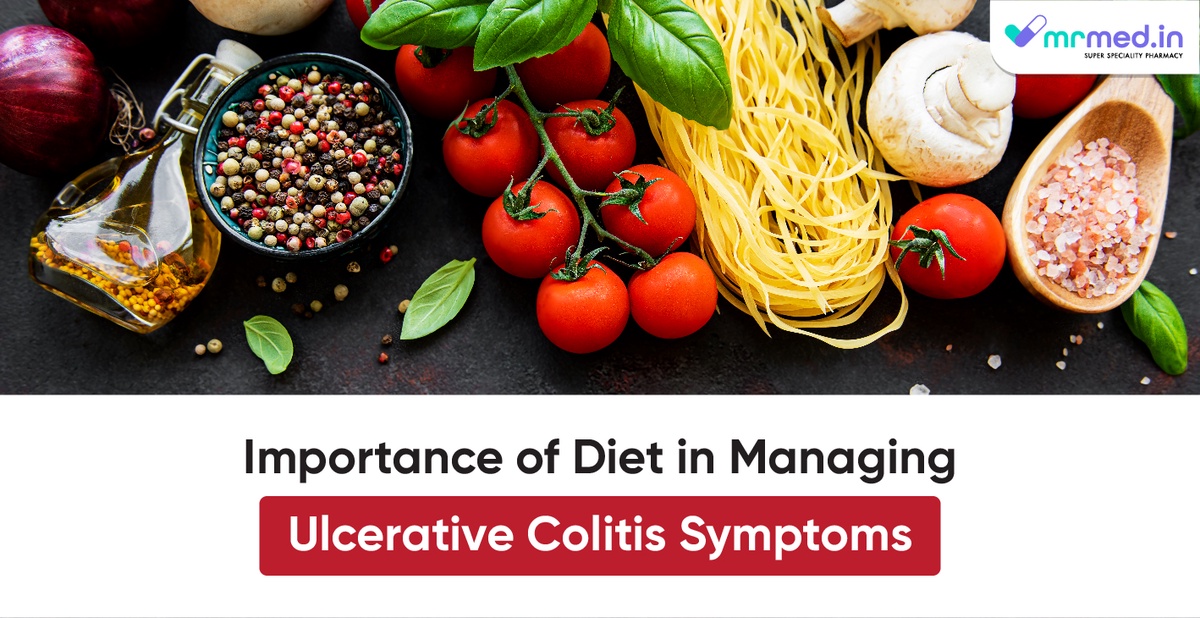Ulcerative Colitis, or UC, is a long-lasting problem that result inflammation in the colon and rectum, leading to symptoms like stomach pain, diarrhea, and losing weight. While medicines are important for dealing with UC, what you eat can also make a big difference in how you feel. Many people discover that following specific diets can ease their symptoms and make life better.
Ulcerative Colitis
Before we talk about diets, let's understand what UC is. It's a condition where your immune system acts up, causing inflammation in the inner lining of your colon and forming sores. It is not exactly known why UC happens, but things like genetic factors, environmental factors, and an extra-active immune system might all play a part in it.
The Gut-Brain Connection
The gut-brain axis plays a crucial role in the manifestation of UC symptoms. Stress and emotional well-being can impact the severity of symptoms, emphasizing the importance of a holistic approach to management. Diet, as a modifiable factor, is one key aspect that individuals can control to influence their condition positively.
Dietary Strategies for Managing UC Symptoms
- Low-Residue Diet: A low-residue diet involves limiting high-fiber foods to reduce the frequency and volume of bowel movements. This can be particularly beneficial during flare-ups, minimizing irritation to the inflamed colon.
- Identifying Trigger Foods: Keeping a food diary can help individuals identify specific foods that trigger or worsen symptoms. Common triggers include dairy, spicy foods, caffeine, and artificial sweeteners. Personalized adjustments based on individual sensitivities are crucial.
- Probiotics and Prebiotics: Maintaining a healthy balance of gut bacteria is essential for people with UC. Probiotics (live beneficial bacteria) and prebiotics (fibers that nourish good bacteria) can contribute to good bacteria, improving their gut health. Yogurt, kefir, and certain supplements can be incorporated into the diet following consultation with a dietitian.
- Omega-3 Fatty Acids: People with UC should consider foods rich in omega-3 fatty acids, such as fatty fish (salmon, mackerel, and sardines), flaxseeds, and walnuts, which possess anti-inflammatory properties that may help manage UC symptoms.
- Small, Frequent Meals: Having smaller, more frequent meals throughout the day can ease the digestive burden and reduce the likelihood of triggering symptoms. This approach also helps in maintaining adequate nutrient intake.
The Role of Medicines in Ulcerative Colitis Treatment
While dietary modifications are integral to managing UC, medications prescribed by healthcare professionals are often a cornerstone of treatment. Medications aim to achieve and maintain remission, reduce inflammation, and alleviate symptoms. Commonly prescribed medications include:
- Aminosalicylates: These anti-inflammatory medications, such as mesalamine, work topically in the colon to reduce inflammation.
- Corticosteroids: In cases of moderate to severe flare-ups, corticosteroids like prednisone may be prescribed for their potent anti-inflammatory effects.
- Immunomodulators: Medications like Xeljanz 5mg Tablet suppress the immune system, reducing inflammation and preventing flare-ups.
- Biologics: Targeted therapies like infliximab and adalimumab inhibit specific immune pathways involved in UC, relieving some individuals.
People with UC should get concerns from their healthcare team to determine the most appropriate medication regimen based on the severity of their condition and individual response.
Conclusion
In summary, everyone needs to recognize that the impact of diet on managing ulcerative colitis symptoms is a complex and individualized aspect of the overall treatment. Adjusting what we eat can substantially manage symptoms, but there is no universal fix. For people with ulcerative colitis, teaming up with healthcare professionals is key to crafting a well-rounded management plan that combines dietary strategies with medical interventions. Taking a proactive approach can improve their quality of life by considering the connection between the gut and brain, identifying foods that might trigger symptoms, and ensuring they get the right nutrients in their diet. It is all about a comprehensive, holistic strategy for a healthier journey.


No comments yet